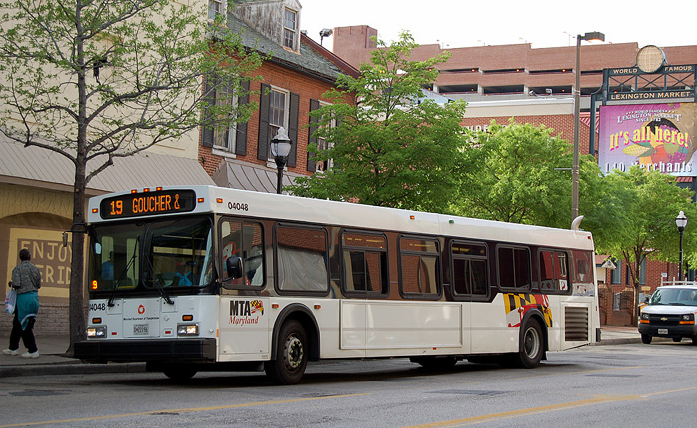Instead of venturing out beyond the curb to see if the bus is coming, the Maryland Transit Administration wants riders to be able to check their phones.
That’s great and all, but some civic-minded technologists say the agency is going about it all wrong.
“The MTA should put their energy into improving the reliability of the real-time bus locations, then building a well documented, standards-based open API,” said Chris Whong, a Baltimore-bred civic hacker now living in Brooklyn. “Let Baltimore’s community of developers and civic hackers worry about building the user-facing apps.”
To Whong, the bus tracker is a “perfect example” of misplaced priorities by the government.
The burning question was whether or not the data feeding the MTA's tracker was consumable by third-parties.
Here’s what happened.
Last Monday, the city launched a beta version of a tracking program for MTA buses. Over the next 100 days, the transit authority will test the web-based My MTA Tracker for Bus in focus groups made up of employees, riders and others. The program will be available on the My MTA Tracker website. Riders can also sign up for text and email alerts on the site.
The web app uses GPS to determine arrival times at specific stops. MTA devs have been working for the last year on it. GPS was already installed on buses, but engineers had to create compatibility between the tracking software and three separate operator logon systems.
MTA reps told Baltimore Brew that those cellular systems are 25 years old.
At times, buses will drop off the route, and operators have to log back on. According to the Baltimore Sun, improvements are “years away.”
By releasing a public beta, the MTA acknowledged that there would be issues to work out. But complaints started to mount early. Many routes didn’t appear to show real-time data. The platform has been anticipated for years, so civic hackers aren’t going to wait 100 days.
In the first week, a new map has already emerged.
The project was spearheaded by Whong, a Baltimore native and open data enthusiast who built a New York City taxi trip visualizer last summer. Whong now lives in Brooklyn, but complaints about the MTA tracker app on the Baltimore Transit Facebook Group (which he helped create) caught his eye.
The map Whong created basically shows how many vehicles are reporting at a given time. It doesn’t show routes or timing. Whong’s goal in getting the map up and running was to show that the raw data from the MTA was usable.
“The burning question was whether or not the data feeding the MTA’s tracker was consumable by third-parties,” he told Technical.ly Baltimore via email. “With a bit of tinkering I was able to track down the endpoint that serves real-time location data, and managed to get it to respond with data from all of the routes, not just one or two.”
The app showed that the buses “reporting” the data fluctuated.
At 8 a.m. Wednesday, about 145 buses showed up. Throughout the day, the count was mostly in the 80s. As of 11 a.m. Wednesday, the map showed about 150 buses reporting. Fellow civic hacker Shea Frederick jumped in to add automated refresh, and add tails to the bus locations. Whong also wants to add data logging to show how far off schedule the buses are. The project already has a presence on GitHub.
Before you go...
Please consider supporting Technical.ly to keep our independent journalism strong. Unlike most business-focused media outlets, we don’t have a paywall. Instead, we count on your personal and organizational support.
Join our growing Slack community
Join 5,000 tech professionals and entrepreneurs in our community Slack today!

The person charged in the UnitedHealthcare CEO shooting had a ton of tech connections

From rejection to innovation: How I built a tool to beat AI hiring algorithms at their own game

The looming TikTok ban doesn’t strike financial fear into the hearts of creators — it’s community they’re worried about


